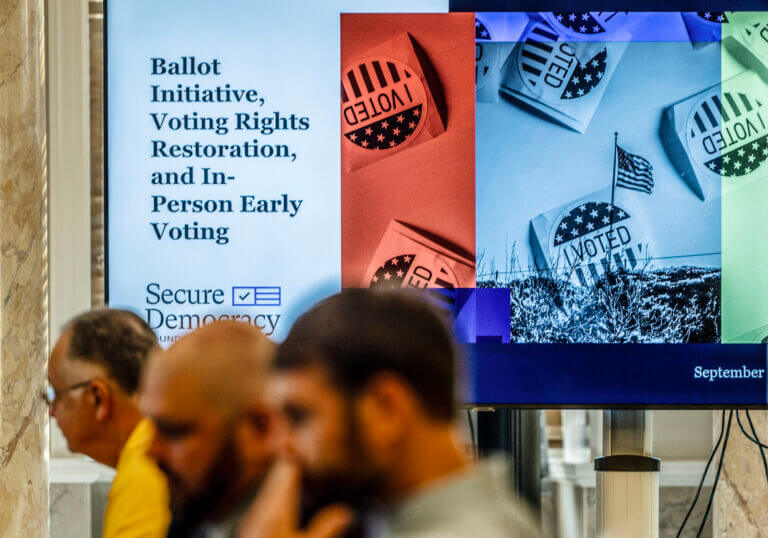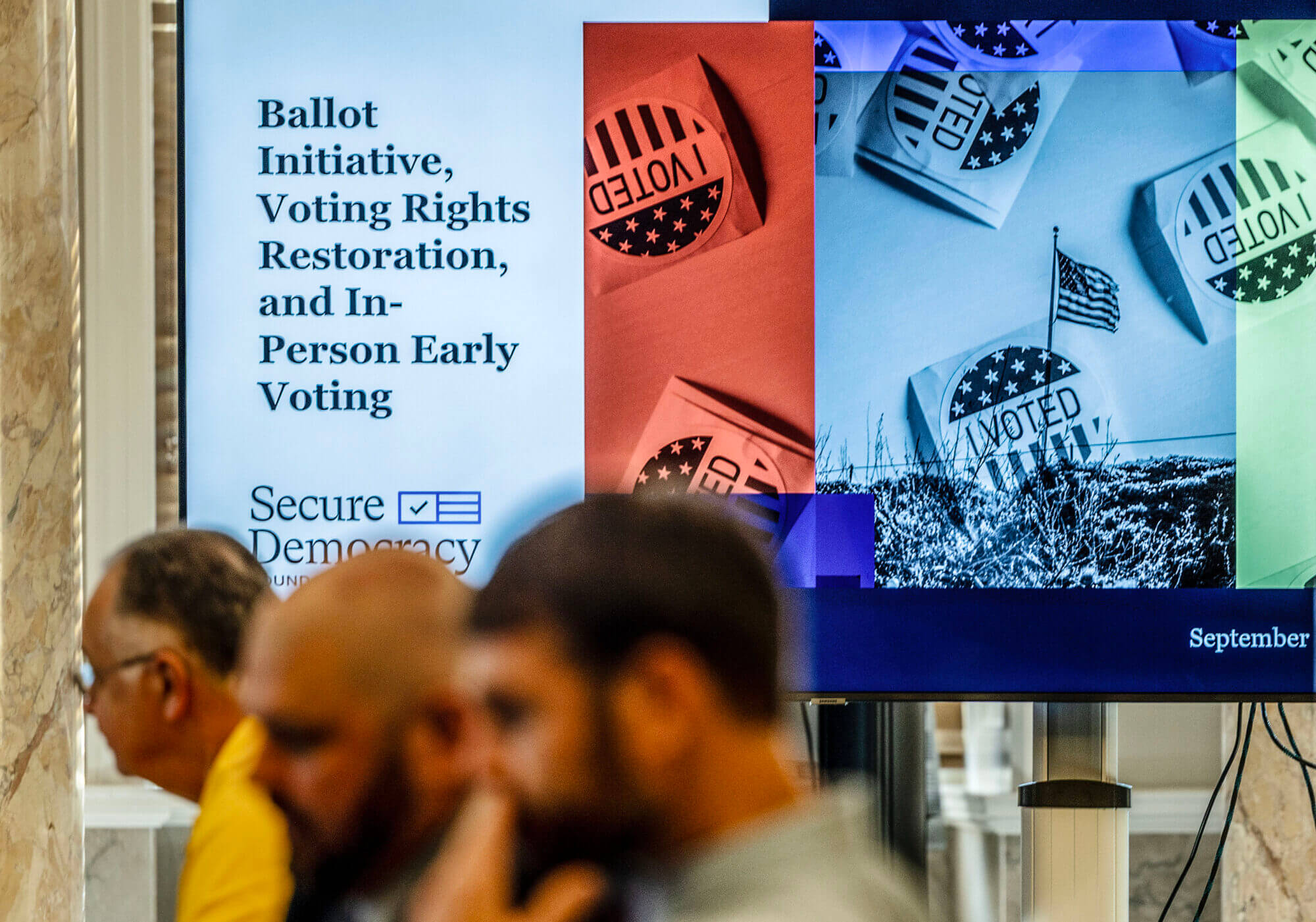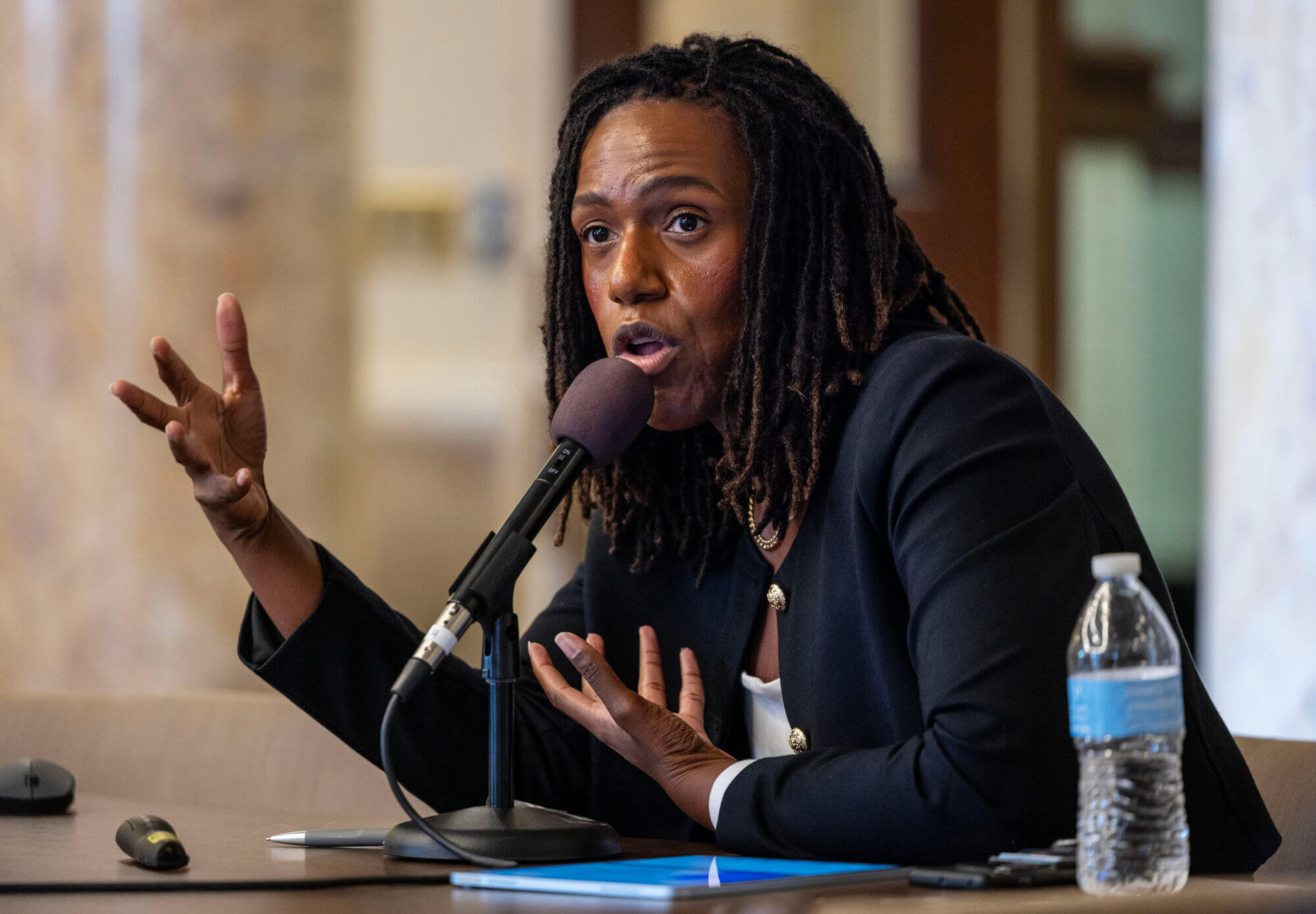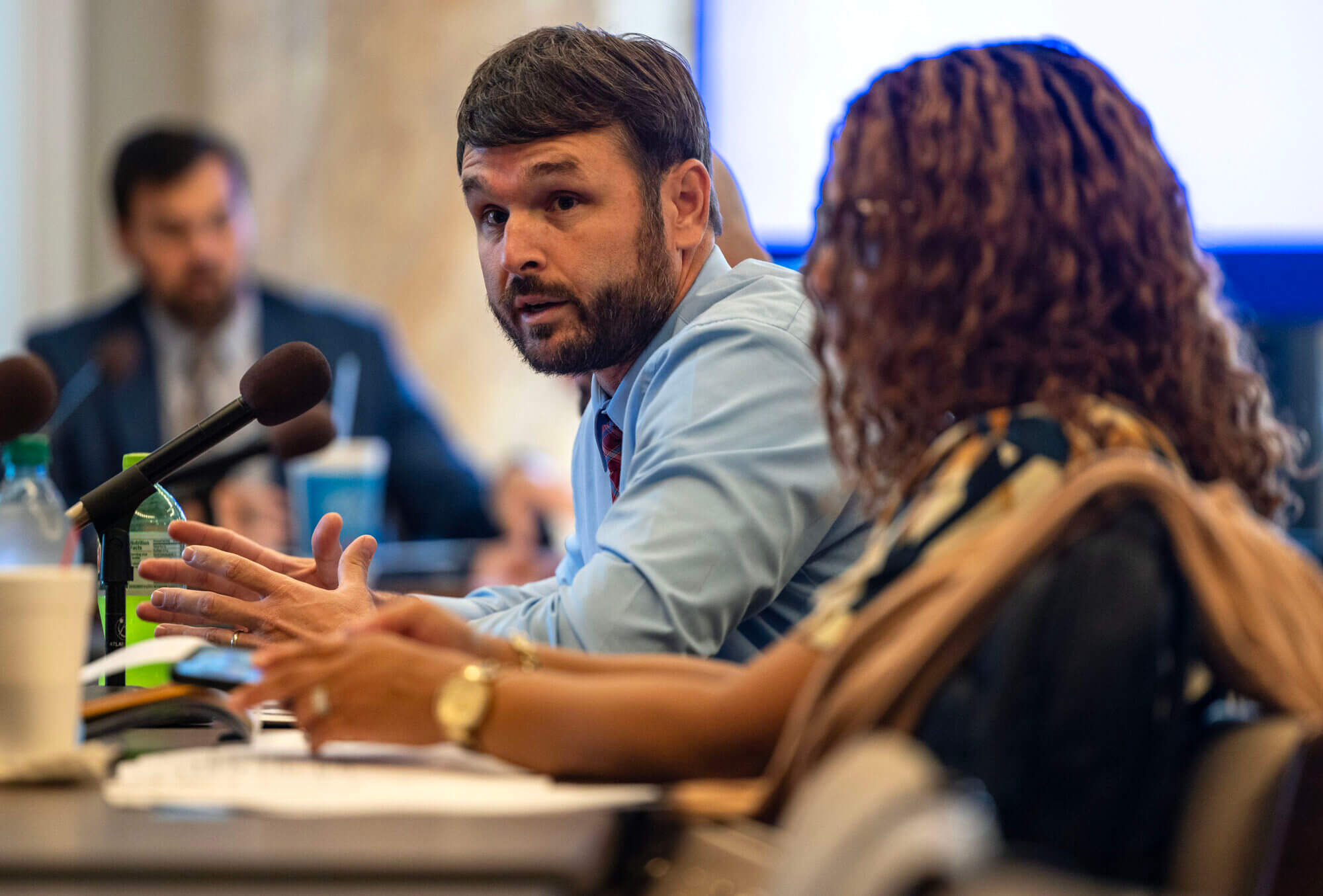

A special House committee on Thursday began work on three issues that have stumped Mississippi lawmakers for years: restoring voters’ right to sidestep the Legislature and put issues on a ballot, restoring voting rights to convicted felons and allowing people to easily vote before election day.
Members of the House Select Committee on Voters Rights heard from Samantha Buckley, director of policy for the Secure Democracy Foundation. Her presentation made clear that Mississippi is far behind the curve on dealing with these three voting rights issues.
House Speaker Jason White has tasked the bipartisan panel — one of four select committees he formed to tackle complex issues before the next legislative session — to hold public hearings on the issues and craft legislation.
“Once again, the House’s legislative priorities will be clear and informed from the start as we maintain our focus and energy on preparing for the 2026 legislative session,” he wrote recently of the select committees.
In MS, 52,000 can’t vote because of nonviolent records
Buckley told lawmakers that 46 other states allow some sort of automatic restoration of voting rights for people convicted of crimes who have completed their sentences. Mississippi is one of only four states with a difficult application process for restoration, and given that only 207 people here had their rights restored from 1997 to 2004, it’s process may be the most restrictive. It requires lawmakers to pass by a two-thirds margin in each chamber an individual bill for each person’s rights to be restored, or a governor’s pardon.
The Mississippi Constitution drafted in 1890 in the Jim Crow era of racial discrimination listed 10 disenfranchising crimes — offenses that state leaders at the time believed Black people were more likely to commit. Since then, attorneys general interpretations added many more nonviolent, disenfranchising crimes.
Buckley said about 52,000 Mississippians, or about 2% of the voting age population, currently cannot vote because they have nonviolent felony records.

Buckley said many states provide for automatic restoration of rights after someone serves their sentence, fulfills their probation or parole, and-or makes financial restitution. She said making it automatic saves states money and reduces bureaucracy. But she said making such changes in Mississippi would most likely require a change in the state constitution, a heavier lift requiring a statewide vote rather than just lawmakers passing a law.
Rep. Noah Sanford, a Republican from Collins co-chairing the select committee, said he believes reform of felony suffrage restitution can pass the House. Rep. Price Wallace, a Republican from Mendenhall and co-chair, said Speaker White’s focus on the issue with the select committee will help suffrage reform legislation’s chances.
“I think there is broad consensus among House members that restoration of voting rights for nonviolent offenders is the right thing to do,” Sanford said. “But we are not kings, and there are two other levels it has to go through (the Senate and governor).”
MS has had on-again, off-again ballot initiative rights
Mississippians’ right to place issues directly on a statewide ballot is, technically, enshrined in the state constitution.
Mississippians had the right to ballot initiative starting in 1914, but the state Supreme Court threw it out in 1922. Voters restored the right by passing a constitutional amendment in 1992, but the Supreme Court again nullified it on a technical issue in a lawsuit over voters passing a medical marijuana initiative in 2020.
The right to initiative in the state constitution includes requirements for gathering voter signatures from Mississippi’s five congressional districts. But in 2001, the state lost a district from population loss, and the court ruled the initiative inoperative. Since then, despite calls from voters and advocates to restore it, lawmakers have dickered over details and signature thresholds and failed to restore the right.
Buckley told lawmakers Thursday that the simplest way to restore the right would be to change constitutional language on signature gathering from five districts to four, or have language adapting to whatever number of districts the state has at the time of an initiative effort.
Buckley said 23 other states, plus the District of Columbia and U.S. Virgin Islands, have some sort of functioning ballot initiative process.
Lawmakers have debated how stringent the requirements for placing an issue directly before voters should be. Some fear sidestepping the state’s representative form of government could allow special interests with deep pockets to game the system. Others say the state’s previous requirements were too strict.

Buckley noted that, from 1992 until the high court ruling in 2021, Mississippi voters passed only three initiatives — one restricting eminent domain, one requiring voters to provide IDs and one (the court struck down) approving medical marijuana.
Mississippi’s ballot initiative in the past gave voters the right to change the state constitution. But lawmakers have also considered allowing it only for addressing state law.
Buckley said allowing it for state law might prove problematic because “when the public makes a decision, the Legislature could then change it back — what does that mean about the process?” She noted that states’ ballot initiative processes vary.
“No state really has a template,” she said. “Every state does it differently.”
Early voting faces uphill battle
Mississippi is one of three states — along with Alabama and New Hampshire — that does not allow in person early voting. In her presentation, she gave an example of the difficult process “Frank,” who would be out of town on Election Day, would have to go through to vote absentee beforehand in Mississippi.
Buckley said that in most states, in-person early voting “mimics most of Election Day practices.” She said it would reduce paperwork and clerical mistakes from Mississippi’s absentee voting process and mean shorter lines and less people walking away without voting on Election Day.
But early voting in Mississippi and other states has brought much debate, oftentimes partisan, with many Republican officials opposing it. Gov. Tate Reeves has been very vocal with his opposition to it.
Sanford said that of the three issues the committee is tackling, allowing early voting might face the most uphill battle.
“The governor remains opposed to early voting, and he’s made that extremely clear that it’s not subject to change,” Sanford said. “I’m not saying we are not going to work on early voting — compromise is the name of the game — but that may not be the focus as much as suffrage restoration and ballot initiative.”
- Former Greenwood police officer pleads guilty to federal drug trafficking charges - February 27, 2026
- UMMC officials say normal operations will resume Monday after cyberattack - February 27, 2026
- Hinds County public defender: Office needs additional funding to avert constitutional crisis - February 27, 2026